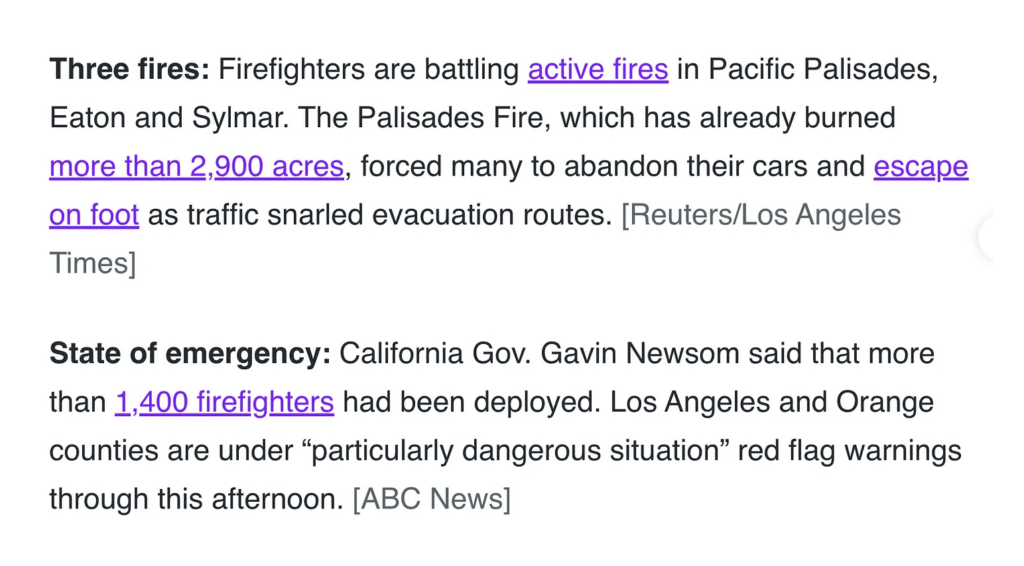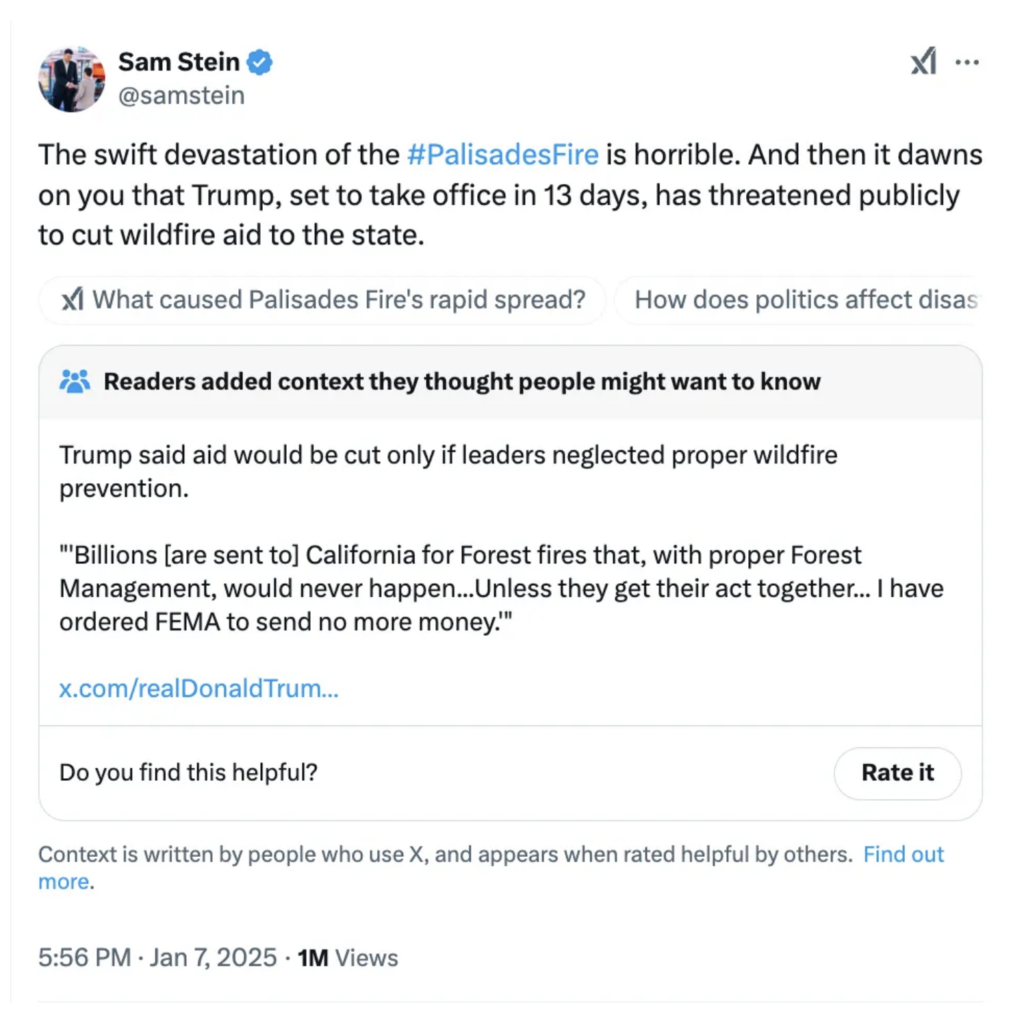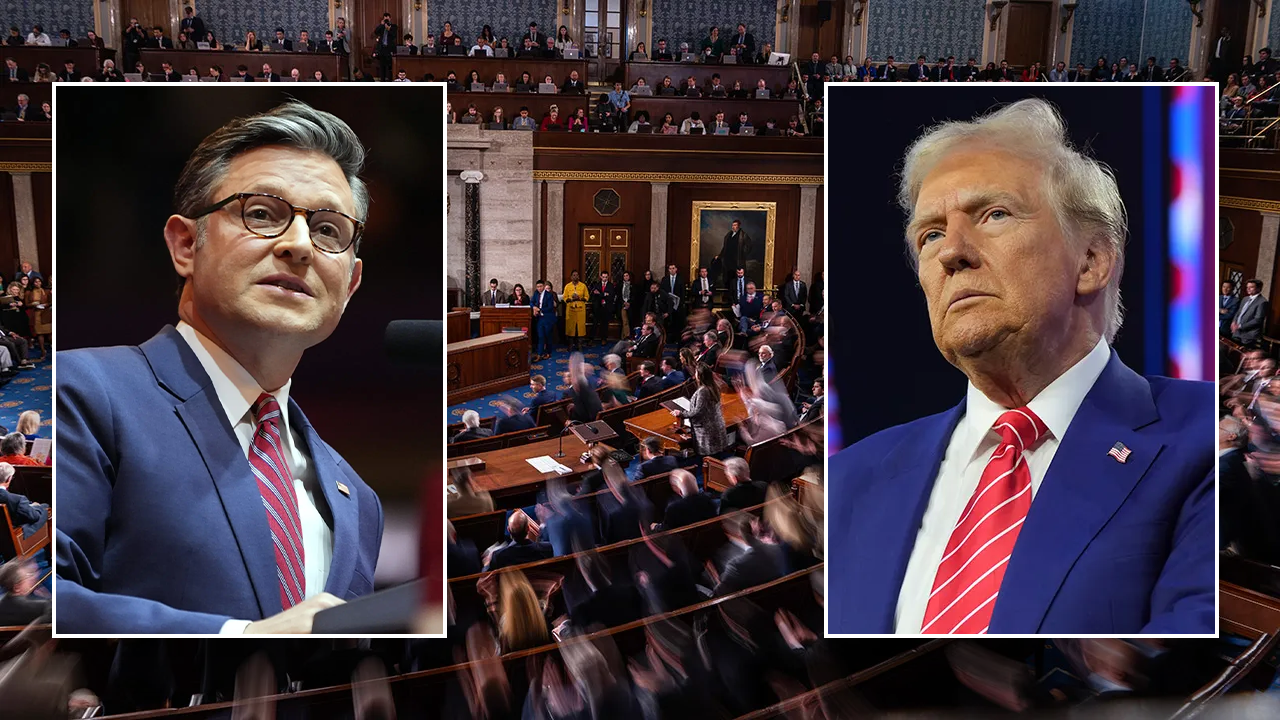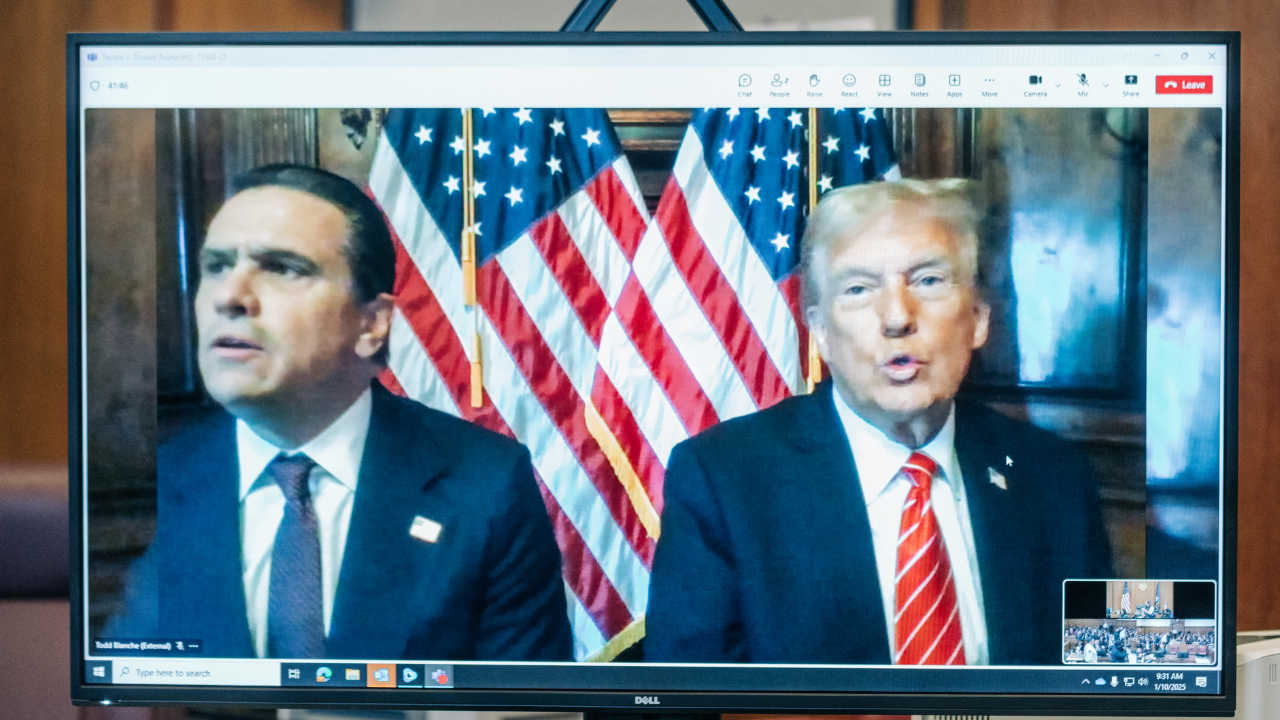Astonishingly devastating fires are burning mostly unchecked in Los Angeles, destroying whole neighborhoods, and see if you can spot the problem in this Yahoo News update I found in my inbox this week:

As of that report, thousands of acres of fire burning into (and then straight through) neighborhoods; 1,400 firefighters. In Pacific Palisades alone, where the biggest fire started first, we’re below one firefighter per two acres of fire. I’ve spent most of my life in California, and a quite common experience is to be in way-Northern California, for example, and watch a line of fire engines go racing past from San Diego and Newport Beach, 500 miles from home. We deal with big fires with prompt statewide mutual aid, a well-practiced system.
I live near the Eaton fire, which is burning in the hills above Pasadena, and I listened all Tuesday night for the cavalry to arrive. The cavalry, bizarrely, did not seem to arrive. And so I watched houses burn, on the news, with reporters present but no firefighters.
This is becoming a widespread problem, so serious and obvious that even the Los Angeles Times has noticed, writing:
As wildfires raged across Los Angeles on Tuesday, crews battling the Palisades blaze faced an additional burden: Scores of fire hydrants in Pacific Palisades had little to no water flowing out.
“The hydrants are down,” said one firefighter in internal radio communications.
“Water supply just dropped,” said another.
By 3 a.m. Wednesday, all water storage tanks in the Palisades area “went dry,” diminishing the flow of water from hydrants in higher elevations, said Janisse Quiñones, chief executive and chief engineer of the Los Angeles Department of Water and Power, the city’s utility.
Where I live, in the western San Gabriel Valley, a large group of suburban fire departments has built an effective system of integrated and automatic mutual aid, the Verdugo system, run from a shared dispatch center in Glendale. I was listening to Verdugo dispatch Tuesday night, and the dispatchers gave up on dispatching. They broadcast calls in sets of 10 or 12, without assignments, so firefighters could hear what was happening, in case anyone could get to any of it: homes burning at the following addresses, brush burning at the following addresses, wires down at the following addresses…
The fire departments aren’t the problem, and the firefighters on the ground are very much not the problem. A cluster of headlines this morning at the highly alert news aggregator Rantingly begins to get at the underlying reality:

The mayor of Los Angeles, having cut fire department funding to pay for social justice programs, was on a city-funded outreach trip to Ghana as her city burned. How important.
As a matter of symbolism, the destruction of Pacific Palisades (and, as we saw Wednesday morning, big stretches of Malibu) is a gut punch. These are the most comfortable places in Los Angeles, and one of the discussions on social media this week is about which celebrities have evacuated or lost their homes. (“Oh my God, Tom Hanks!”) The places that are burning are the Democrat Party’s ATM machine. One wonders if they’ll notice the meaning of the fires. Meanwhile:

So yes, the ability of leftists to miss the point appears to be infinite. California has enormously expensive and intrusive government that can’t provide firefighters or water when your neighborhood burns down, which proves that Orange Man Bad.

I’m more than a mile from the edge of the nearest evacuation warning, so we’ll be fine. But that’s because of the accident of our location relative to the fire, not because anything here actually works.
This article was originally published on the author’s Substack, “Tell Me How This Ends.”
Chris Bray is a former infantry sergeant in the U.S. Army, and has a history PhD from the University of California Los Angeles. He is the author of "Court-Martial: How Military Justice Has Shaped America from the Revolution to 9/11 and Beyond," published last year by W.W. Norton.

 By The Federalist (Politics) | Created at 2025-01-10 12:21:18 | Updated at 2025-01-10 16:03:56
3 hours ago
By The Federalist (Politics) | Created at 2025-01-10 12:21:18 | Updated at 2025-01-10 16:03:56
3 hours ago








